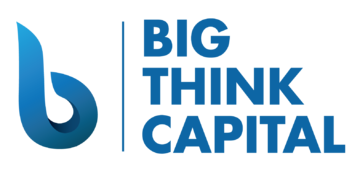
Securing financing is an integral part of running a successful business. Whether you’re starting a new venture or looking to expand an existing one, understanding the fundamentals of business financing is crucial. In this blog, we’ll provide you with six valuable tips that can help you navigate the world of business financing effectively. Let’s dive in!
1) Monitor Your Credit Score
Your credit score serves as a reflection of your creditworthiness and plays a crucial role in obtaining favorable financing terms. Start by obtaining a copy of your credit report from credit bureaus such as Experian, TransUnion, or Equifax. Review the report thoroughly, ensuring that all the information is accurate and up to date. Dispute any errors or inaccuracies promptly to avoid negative impacts on your credit score.
To improve your credit score, pay your bills on time and in full. Late payments and high credit card balances can lower your score. Maintain a low credit utilization ratio by keeping your credit card balances well below their limits. Avoid opening multiple new credit accounts in a short period, as it can lower the average age of your credit history.
Consider using credit monitoring services to receive regular updates on your credit score. These services provide insights into factors affecting your score and offer personalized tips on improving it. By actively monitoring and managing your credit score, you increase your chances of securing loans at competitive rates and favorable terms.
2) Develop a Solid Business Plan
A comprehensive and well-crafted business plan is a critical tool for attracting potential lenders and investors. It serves as a roadmap that outlines your business’s objectives, strategies, and financial projections.
Start by crafting an executive summary that highlights the key points of your business plan concisely. It should clearly communicate your business’s unique value proposition, target market, and competitive advantage.
Next, conduct thorough market research to understand your industry, target audience, and competitors. Analyze market trends, customer preferences, and potential growth opportunities. This information will help you develop effective marketing and sales strategies and make informed financial projections.
In the financial section of your business plan, include detailed revenue forecasts, expense projections, and cash flow analysis. Demonstrate your understanding of the financial aspects of your business, including costs, pricing strategies, and profit margins.
A well-structured and compelling business plan demonstrates your dedication, expertise, and vision for success. It enhances your credibility and increases your chances of securing financing from lenders and investors who can see the potential in your business.
3) Adjust Your Financial Strategy
A successful financing strategy requires flexibility and adaptability as your business evolves. Regularly assess your financial needs, goals, and the changing market conditions to ensure your financing strategy remains aligned with your business objectives.
Evaluate your cash flow requirements and determine whether short-term or long-term financing solutions are more suitable. Short-term financing options, such as lines of credit or invoice financing, can provide immediate cash flow relief for operational expenses, while long-term financing options, like term loans, may be more appropriate for larger investments or expansion plans.
Consider the stage of your business and its growth trajectory. Startups may benefit from financing options specifically designed for early-stage businesses, such as venture capital or angel investments. Established businesses with a proven track record may have more options available, including traditional bank loans or asset-based financing.
Regularly reassess your financing needs to determine if refinancing existing debts or consolidating multiple loans into a single payment would be beneficial. This can help streamline your finances, improve cash flow management, and potentially lower interest rates. By remaining proactive and adaptable, you can ensure that your financing strategy is optimized to support your business’s growth and financial stability.
4) Consider Your Financing Options
The world of business financing offers a diverse range of options to suit different needs and circumstances. It’s important to carefully consider and evaluate each option based on factors such as interest rates, repayment terms, funding amounts, and potential impact on ownership and control.
- Traditional financing options include bank loans, which often offer stability, competitive interest rates, and longer repayment terms. However, they may require collateral and stringent eligibility criteria.
- Government-backed loans and grants are available for specific industries, geographic regions, or projects. These funding programs provide non-repayable funds or low-interest loans to support business growth and stimulate economic development. Research local, state, and federal government programs to identify opportunities relevant to your business.
- Equity financing, such as venture capital or angel investments, involves exchanging ownership in your business for funding. This option can provide substantial capital and access to expertise and networks. However, it may also mean sharing decision-making power and potential dilution of ownership.
- Crowdfunding platforms have gained popularity as a means to secure financing from a large pool of individual investors. This option allows you to present your business idea or product to a broad audience and receive contributions in exchange for rewards or future product/service delivery.
- Alternative financing options like invoice financing, equipment leasing, or revenue-based financing can provide more flexibility, especially for businesses with specific cash flow or asset requirements.
Thoroughly research and compare the different financing options available to determine which aligns best with your business goals and needs.
5) Review Loan Terms and Conditions
Before finalizing any financing agreement, it is essential to review and understand the terms and conditions in detail. Pay close attention to interest rates, repayment periods, collateral requirements, and any associated fees or penalties.
Interest rates significantly impact the total cost of the loan, so it’s important to compare rates from different lenders to secure the most competitive option. Consider whether fixed or variable rates best suit your business’s financial situation and risk tolerance.
Furthermore, review any associated fees or penalties, such as origination fees, prepayment penalties, or late payment fees. Ensure you understand the potential financial implications and their impact on the overall cost of the loan. If the terms and conditions seem unclear or complex, consult with legal or financial professionals who can provide guidance and ensure that you are making informed decisions.
6) Work With a Reputable Financer
When seeking financing for your business, it is essential to partner with a reputable financer that understands your industry and business’s specific needs.
As a national industry leader, Big Think Capital is dedicated to helping businesses acquire loans at competitive rates. With our professional advice and input, we develop customized financing plans tailored to your unique requirements. Our team of experts has a proven track record of providing exceptional customer service and personalized financing solutions. Partnering with Big Think Capital ensures that you receive guidance from a trusted industry leader committed to your success.








